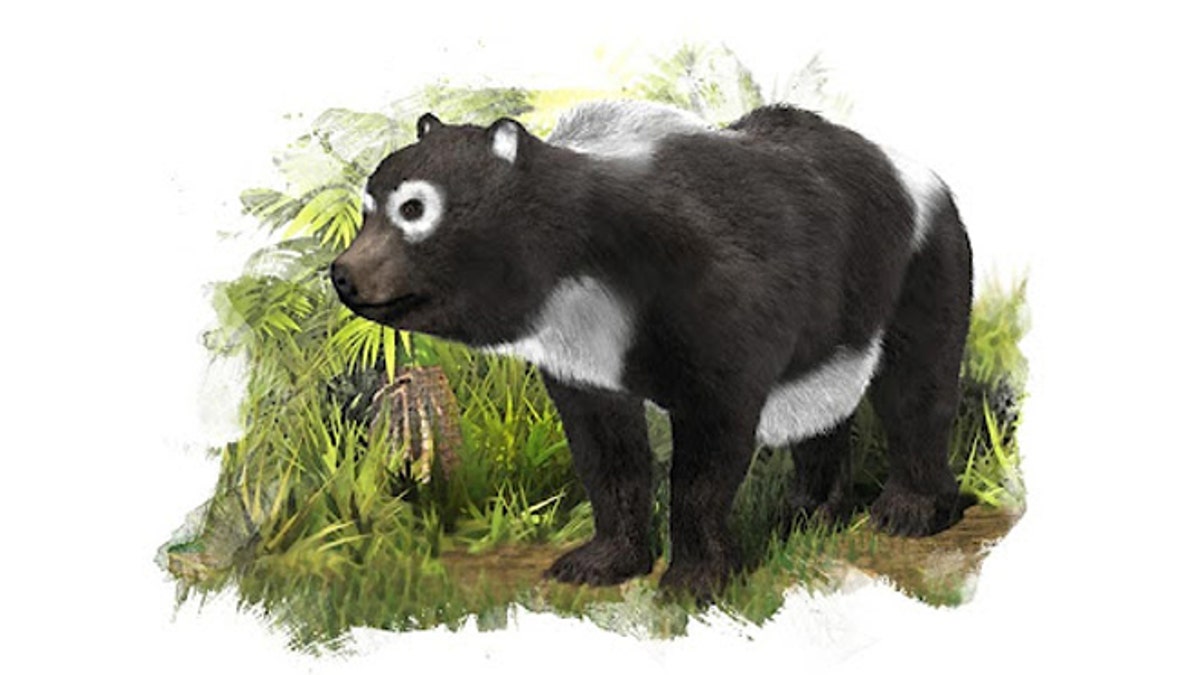
With only teeth to go on, scientists have reportedly identified a giant panda ancestor.[Credit: José Antonio Peñas/SINC]
The fossilized remains of an ancient panda genetically related to China's endangered and much-loved giant panda were found in Spain – suggesting that Chinese bears could have originated in Europe, a new study revealed.
A team of Spanish researchers, including experts from the National Museum of Natural Sciences, identified the giant panda ancestor - Agriarctos beatrix – after finding only its teeth near the city of Zaragoza and is believed to be a small plantigrade omnivore related to the giant pandas. Researchers think the 11-million-year-old species dwelled in the humid forest of what is now modern day Spain.
“The origin of this group is not located in China, where the [giant panda] species lives, but in the warm and humid regions of [southwestern] Europe," said study leader Juan Abella, a paleobiologist at the National Museum in Madrid, Spain, according to National Geographic.
"All bear [teeth] have a series of characters that tell us that they are bears. And the same thing happens with dogs, cats, deer, or other vertebrate groups," Abella added.
This kind of bear was small, even smaller than the specimens of Malayan sun bear, the smallest found today. Must not exceed 60 kilograms of weigh.
Researchers also believe that the ancient panda looked similar in appearance to its modern day bamboo-eating relatives, with its characteristic dark and white patches.
However, this panda was also different from today’s bears.
Weighing in at 130-pounds Agriarctos Beatrix was smaller than all bears on earth today and surely wasn’t one of Europe’s top predators.
"This kind of bear was small, even smaller than the specimens of Malayan sun bear, the smallest found today. Must not exceed 60 kilograms of weight," Abella said.
Researchers speculate that the bear climbed trees to avoid predators such as doglike carnivores called bear dogs and more feline-like creatures called Barbourofelidae, National Geographic reported.
It is unknown, however, what caused the extinction of the bear.
"Until we [find] more remains of this species,” Abella said, "we can not give much more information."
Follow us on twitter.com/foxnewslatino
Like us at facebook.com/foxnewslatino








































